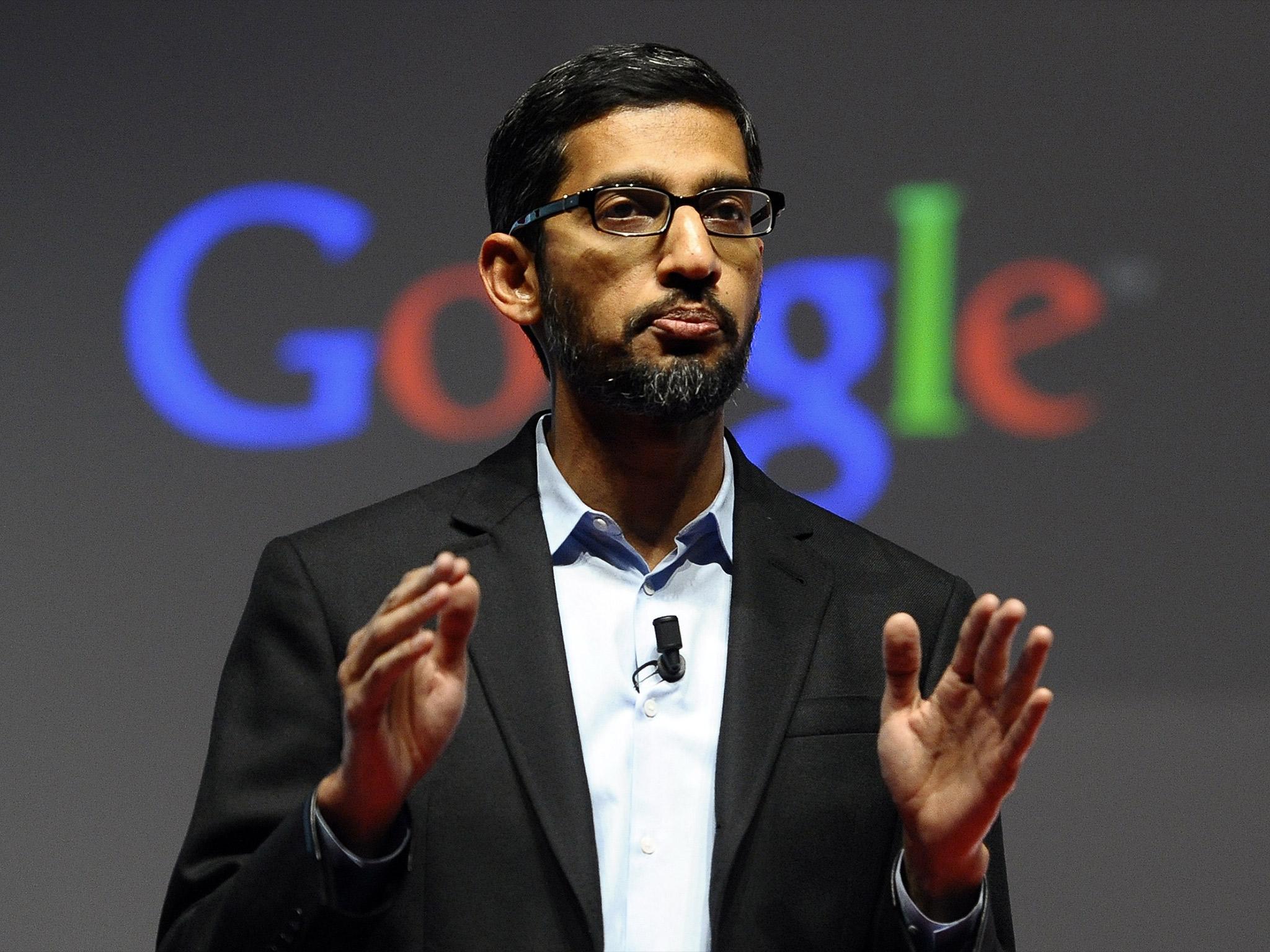Google won't pay more tax until the law changes, CEO Sundar Pichai says
Google pays taxes in Ireland, where it is charged at a lower rate

Your support helps us to tell the story
From reproductive rights to climate change to Big Tech, The Independent is on the ground when the story is developing. Whether it's investigating the financials of Elon Musk's pro-Trump PAC or producing our latest documentary, 'The A Word', which shines a light on the American women fighting for reproductive rights, we know how important it is to parse out the facts from the messaging.
At such a critical moment in US history, we need reporters on the ground. Your donation allows us to keep sending journalists to speak to both sides of the story.
The Independent is trusted by Americans across the entire political spectrum. And unlike many other quality news outlets, we choose not to lock Americans out of our reporting and analysis with paywalls. We believe quality journalism should be available to everyone, paid for by those who can afford it.
Your support makes all the difference.Google CEO Sundar Pichai has defended the company's tax practices and said it won't be paying any more tax unless international tax law is changed.
Pichai said Google has already invested "very heavily" in Europe, where it employs 14,000 people.
“As a global company, we find ourselves between the conflicting priorities of international tax law," he told German newspaper Welt am Sonntag.
He said the current structure means that most companies pay the bulk of their taxes in their home countries.
He also said Google respected these laws and that governments would have to make changes if they wanted to keep more revenue at home.
“Only the further development of the global tax system by politicians can lead to better results,” he said.
His comments come after Google's Paris headquarters were raided as part of a tax payment probe in May, followed by further searches at Google offices in Madrid in June. Tax officials are hoping to prove that Google has unpaid taxes on sales it has made in these countries.
Google pays taxes in Ireland, where it is charged at a lower rate, and is accused of owing €1.6bn in unpaid taxes in France
George Osborne, the former Chancellor, was criticised for striking a tax deal with Google in January, in which it agreed to pay £130m for 10 years of tax.
Critics said that under these terms Google was in effect paying just 3 per cent tax for its operations in the UK.
Pichai warned that the UK's decision to leave the EU may complicate regulation and make it difficult for internet companies to make sense of the rules.
“As companies we see great value in Europe as a unified digital market,” he said, warning that it was a challenge to keep up with varying laws and regulations in every country. “The complexity makes a bigger commitment difficult, which can be seen in investments,” he added.
Join our commenting forum
Join thought-provoking conversations, follow other Independent readers and see their replies
Comments